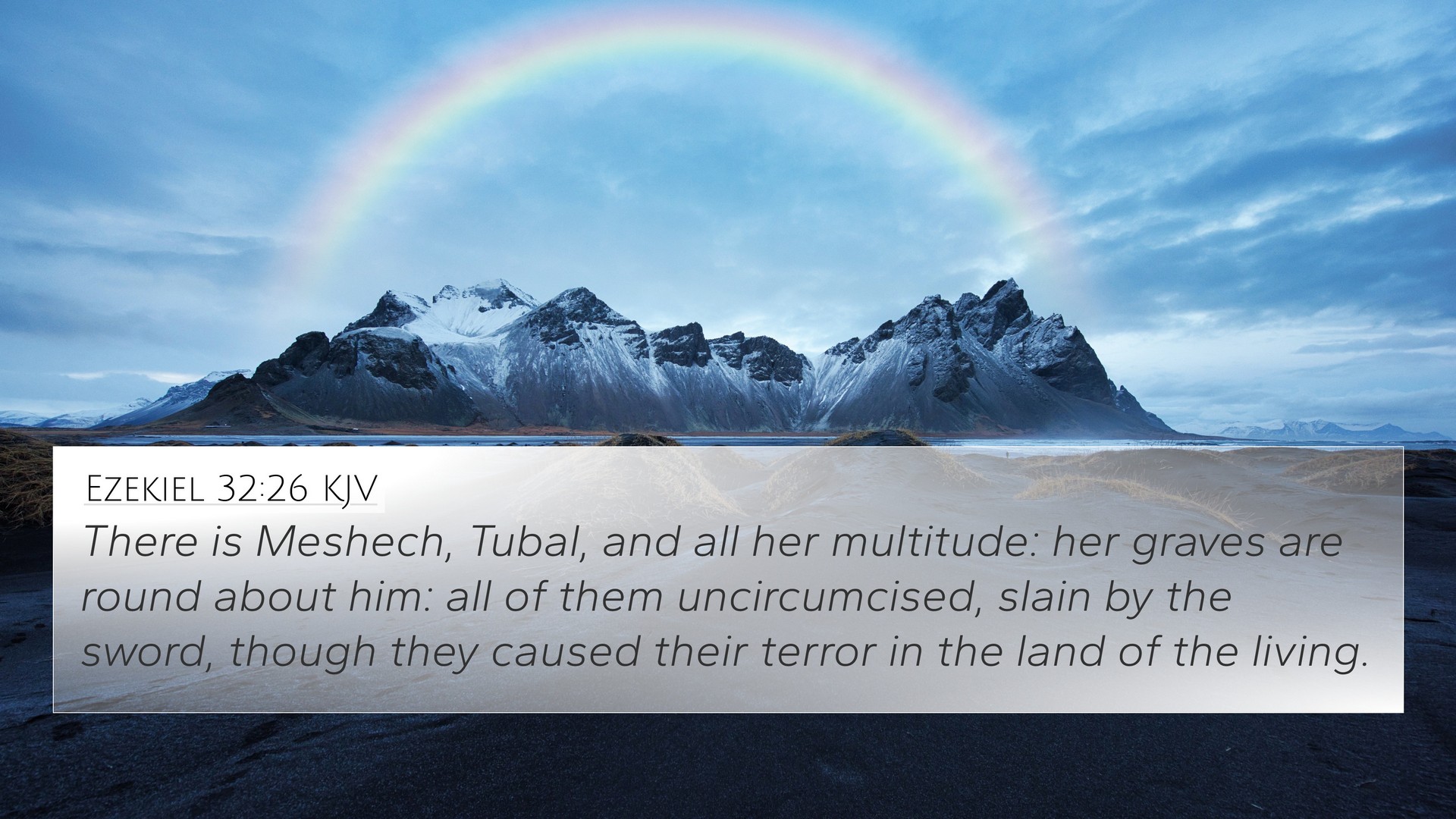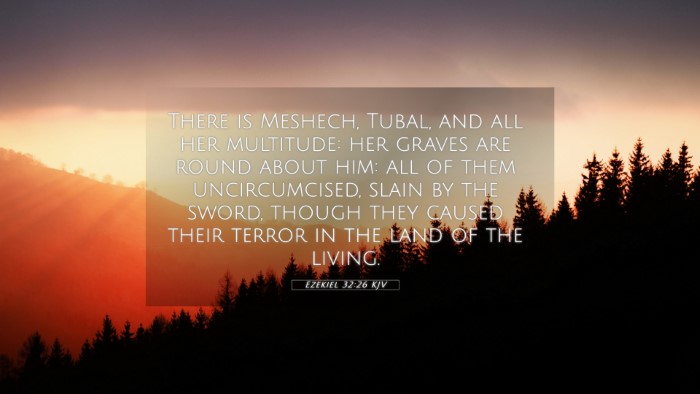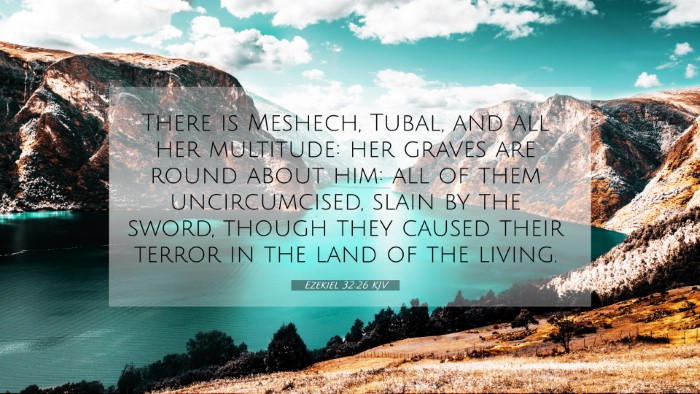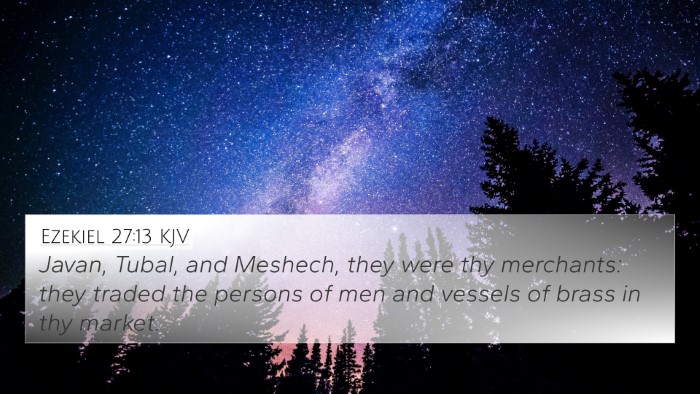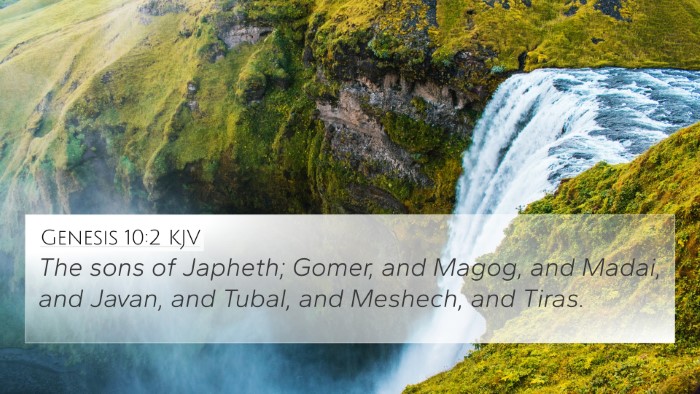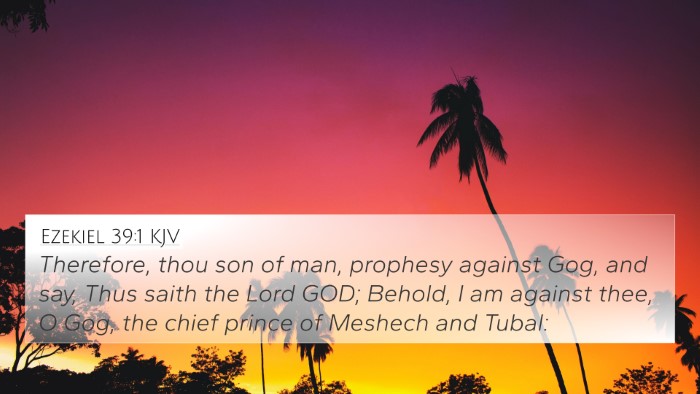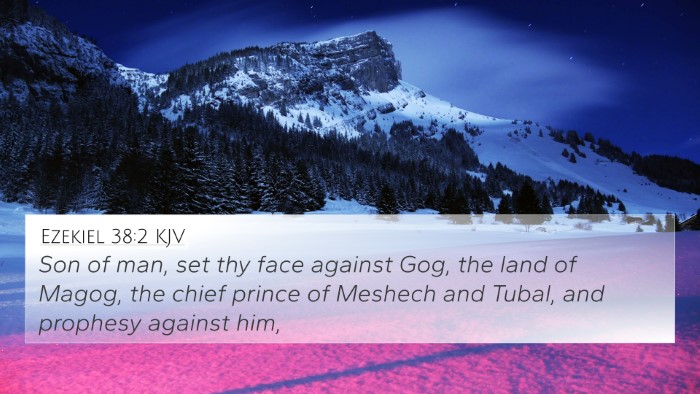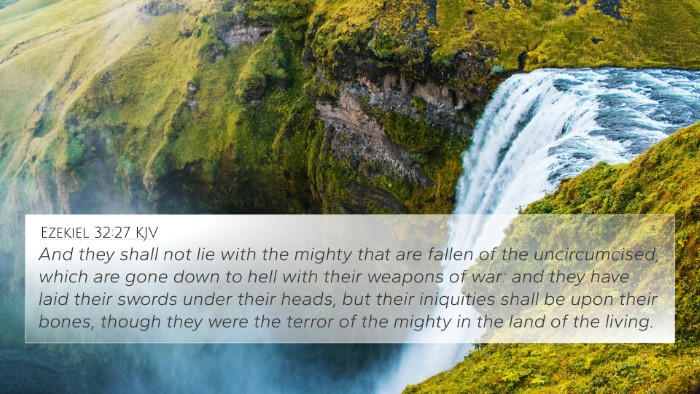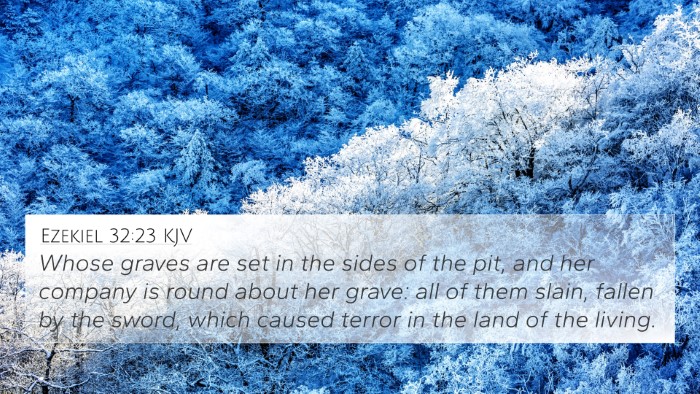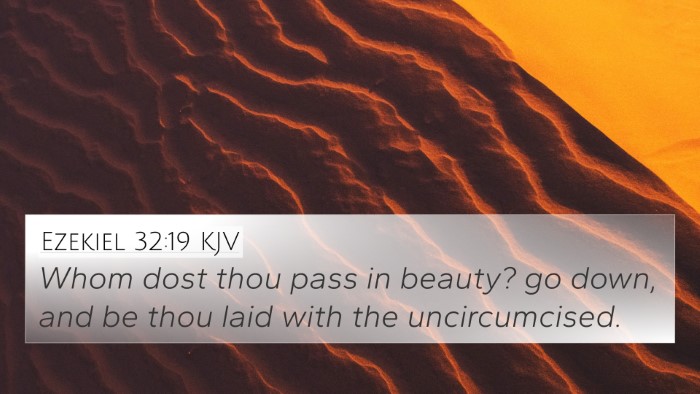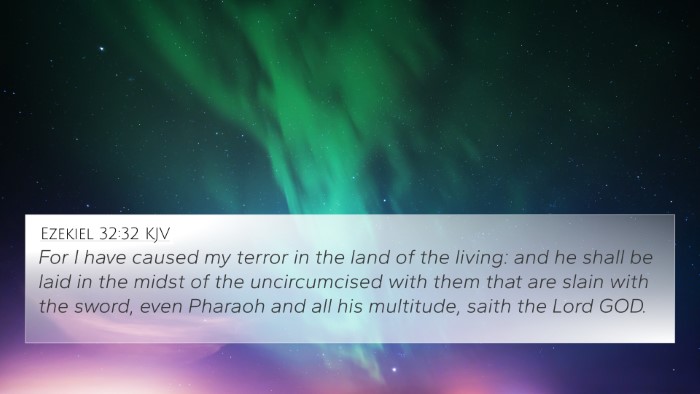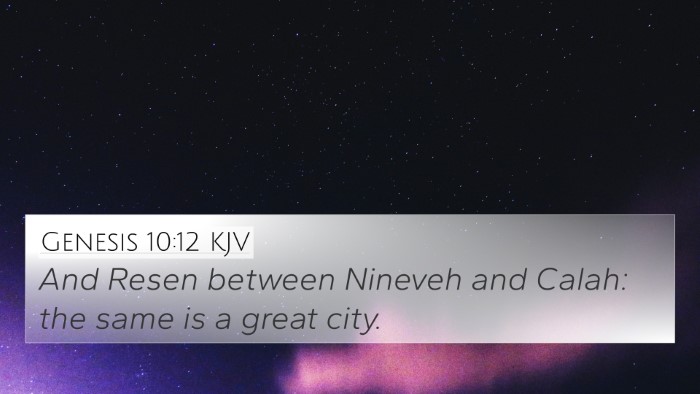Ezekiel 32:26 - Summary and Interpretation
Ezekiel 32:26 serves as a striking reminder of the fate of nations and individuals that oppose God. The verse reads:
"There is Meshech, Tubal, and all their multitude: their graves are round about them: all of them uncircumcised, slain by the sword, though they caused their terror in the land of the living."
Interpretation and Insights
This verse continues the prophetic theme of judgment against the nations. Meshech and Tubal, two regions, represent the enemies of Israel and depict their eventual downfall.
According to Matthew Henry, the uncircumcised depiction signifies the spiritual state of these nations, highlighting their separation from God and covenant.
Adam Clarke elaborates on the idea that this passage emphasizes the ultimate consequence of pride and violence against God’s people, resulting in death and desolation.
Key Themes
-
The Wrath of God: The prophecy illustrates how God responds to sin, particularly the hubris of nations that oppose His purposes (Romans 1:18).
-
Judgment of Nations: A recurring biblical theme, emphasizing that no nation is beyond God’s judgment (Isaiah 34:2).
-
Spiritual State: The reference to uncircumcised nations serves as an image of spiritual separation from God (Ephesians 2:12).
Cross-References
To enhance understanding of Ezekiel 32:26, the following Bible verses serve as significant cross-references that elucidate its themes:
- Isaiah 14:9-11: The descent of the dead and the response of the grave.
- Ezekiel 31:16: The fate of Assyria as a warning to others, highlighting the same themes of pride and downfall.
- Jeremiah 49:23-27: The judgment against the nations, which resonates with Ezekiel's proclamation.
- Revelation 20:14: The lake of fire is the final destination indicating the ultimate defeat of all anti-God forces.
- Psalm 9:17: “The wicked shall be turned into hell, and all the nations that forget God.”
- Daniel 4:37: Nurturing the humility of acknowledgment of God's sovereignty over the kingdoms of men.
- Romans 2:6-8: Describing God’s impartial judgment based on deeds.
Structured Study and Insights
Understanding Ezekiel 32:26 requires contextual insights and a systematic approach to biblical interpretation:
-
Connection with Historical Context: Study the historical background of Meshech and Tubal, and their roles in opposing Israel.
-
Thematic Study: Use thematic Bible verse connections to explore concepts of judgment and grace throughout Scripture.
-
Cross-Referencing Methods: Employ tools such as a Bible concordance or the Bible cross-reference guide to see how this verse interlinks with others.
Practical Applications
The interpretation of Ezekiel 32:26 provides important lessons for contemporary readers:
-
Humility before God: Reflect on the need for nations and individuals to recognize God’s sovereignty to avoid spiritual downfall.
-
The Role of Prophecy: Understand that prophecies serve both as warnings and as assurances of God’s overarching plan for humanity.
-
Intercessory Prayer: Encourage prayer for nations, seeking repentance and alignment with God’s will, in light of the biblical warnings of judgment.
Conclusion: The Importance of Cross-Referencing
Cross-referencing biblical texts, like Ezekiel 32:26, enriches our understanding of God's word.
It reveals the interconnectedness of Scripture, enhancing both personal and collective insight into the nature of God’s judgment.
Utilizing cross-references is essential for a well-rounded comprehension of biblical themes and for sermon preparation or personal Bible studies.
As believers, recognizing these cross-references is crucial. The biblical narrative reminds us of the profound implications of God’s sovereignty and justice, connecting us deeper into the inter-Biblical dialogue that shapes our faith journey.
